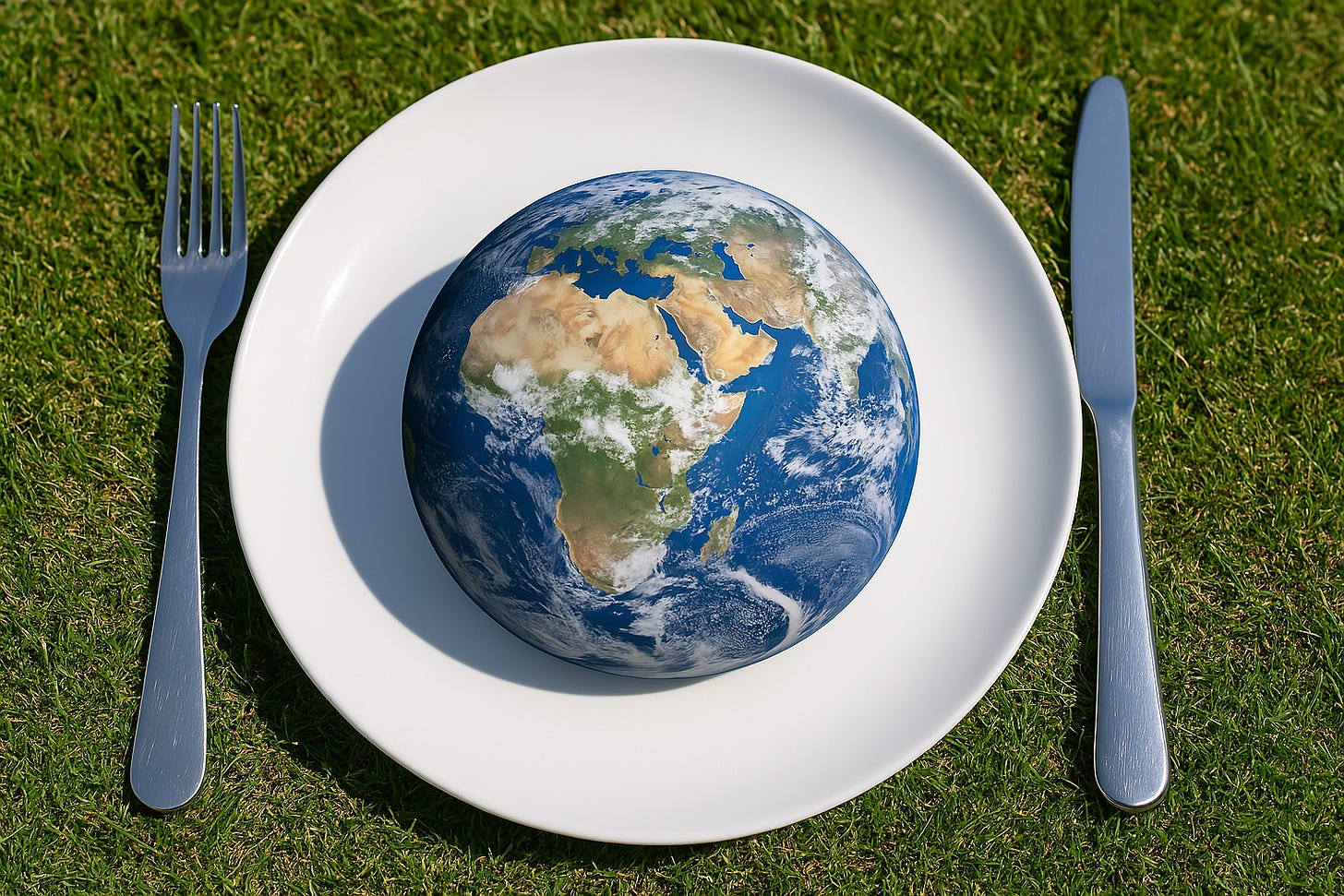A Planet-Protecting Plate: 5 Ways A Vegan's Plant-based Diet Fights the Climate Crisis
Embracing a vegan's diet is an easy choice with a huge impact. Protect the planet and combat the climate crisis through sustainable and compassionate food choices.
The world is facing an unprecedented climate emergency. Floods, wildfires, droughts, and rising sea levels are no longer distant threats—they're happening now. Scientists warn that we’re approaching tipping points, beyond which the damage may be irreversible. We need urgent, systemic change, but we also need to recognize the power of individual choices.
Every meal is a chance to help the planet. Choosing plants over animals cuts emissions, saves water, protects forests, and preserves wildlife. Veganism isn’t just personal—it’s planetary. It’s time to act like the Earth depends on it, because it does.
One often overlooked yet powerful way to address climate change is through what we put on our plates. Our dietary habits carry enormous environmental weight. While many conversations around climate solutions focus on renewable energy or electric vehicles, there's a growing body of research showing that transitioning to a vegan diet is one of the most impactful actions individuals can take to reduce their environmental footprint.
A vegan diet excludes all animal products, including meat, dairy, eggs, and fish. It is rooted in the idea that food systems should nourish people without harming animals or destroying the planet. Far from being a fringe lifestyle, veganism is increasingly recognized as a cornerstone of sustainable living.
Here are five powerful ways a vegan diet helps fight the climate crisis.
1. 🌍 Reduced Greenhouse Gas Emissions
Animal agriculture is responsible for approximately 14.5% of all human-induced greenhouse gas emissions, according to the United Nations Food and Agriculture Organization. That’s more than the entire transportation sector combined.
The culprits? Primarily methane and nitrous oxide. Methane is produced in huge quantities by ruminant animals like cows and sheep through digestion. It's a greenhouse gas 25 times more potent than CO₂ over a 100-year period. Nitrous oxide, which comes from manure and fertilizers used for feed crops, is nearly 300 times more potent than CO₂.
By eliminating demand for animal products, a vegan diet drastically reduces these emissions at the source. In fact, studies from institutions like Oxford University show that going vegan can reduce an individual's carbon footprint from food by up to 73%.
This isn’t just a matter of cutting back—it’s a game-changer. The fewer animals we farm, the fewer emissions we generate.
Keep reading with a 7-day free trial
Subscribe to The Vegan's Voice to keep reading this post and get 7 days of free access to the full post archives.




